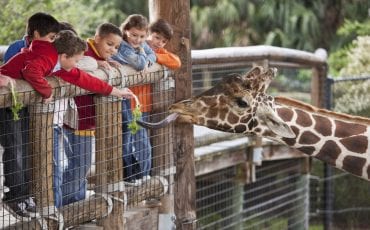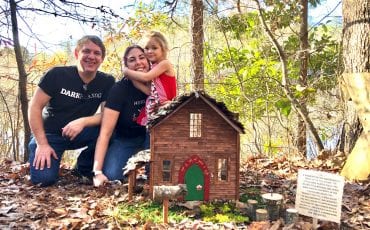Get Up Close: Best Places to See Butterflies

Chattahoochee Nature Center
See a butterfly land right on your hand, arm or even your head! Children can get up close with hundreds of butterflies in these exhibits and encounters.
Did you know that butterflies taste with their feet? Or that when a butterfly lands on you, it’s called lighting? Visiting these encounters or even creating a butterfly garden at home can help children learn about these interesting creatures.
Table of Contents
A Garden With Wings at Smith-Gilbert Gardens
This summer exhibit features native butterflies and their host and nectar plants. Encounter the wonder of butterflies in all stages of life, from egg to adult butterfly. After visiting the butterfly house, visit the pollinator garden where you’ll see butterflies, honeybees, hummingbirds and other pollinators at work. July 1-29.
Douglas County Butterfly Trail
Spot Monarchs, Black Swallowtail and other butterfly species at these gardens containing butterfly weed, milkweed, fennel, zinnias, vegetables, marigolds and more. The Douglas County Butterfly Trail includes 10 gardens. As part of their Douglas County Butterfly Trail Exploration Challenge, take a selfie next to a Butterfly Trail sign for the chance to win a prize. July 28-Sept. 4.
Butterfly Encounter at Chattahoochee Nature Center
Butterflies are back at the Chattahoochee Nature Center! Surround yourself with native butterflies and learn about these amazing pollinators. Families can also learn about nectar plants, explore the center’s 127 acres, take a wildlife walk, see special exhibits, and enjoy the gardens. Through Aug. 6.
Butterfly Experience at Dunwoody Nature Center
Discover hundreds of butterflies up close with butterfly tents, and enjoy educator-led programs and activities, food trunks, drinks and live music. Sept. 9-10.
Pollination Observation Garden at Zoo Atlanta
Located near the Zoo’s Conservation Action Resource Center, the garden features an abundance of native plants and teaches guests about pollination. Signs explain various plants in the garden and the process of pollination.
Bird and Wildflower Garden at Freedom Park
Certified as an Atlanta Audubon Wildlife Sanctuary, this garden contains native plants and shrubs that create a bird and pollinator habitat.
Day Butterfly Center at Callaway Gardens
Over 1,000 butterflies flutter freely in a dynamic, glass-enclosed environment – one of North America’s largest tropical butterfly conservatories. In September, hundreds of iridescent Blue Morpho butterflies will fill the center; the annual Butterfly Festival has crafts, games and activities for all ages.
Dahlonega Butterfly Farm
This eight-acre farm, located southwest of downtown Dahlonega, is focused on conservation and sustainability. Take a tour of the butterfly conservatory and outdoor caterpillar habitat. You’ll have the chance to “catch” a butterfly and observe it up close. With an abundance of wildlife and native plants, it’s the perfect spot to see and learn about butterflies.
Butterflies and Blooms in the Briar Patch
This habitat, located in Eatonton, is managed by volunteers and features host and nectar-providing plants that attract hundreds of butterflies in the summertime. Signs explain the importance of pollinators and their habitats.
Backyard Butterflies
Invite butterflies into your yard by planting flowers and bushes that attract them, including fennel, parsley, butterfly weed, passion flower and elm trees to host caterpillars. Adult butterflies love butterfly bush, lantana and annual zinnias according to Georgia gardening expert, Walter Reeves.
Burying a plastic basin in the ground filled with wet sand or mud will give the butterflies a moist place to land, drink and bask in the sun, he says. You can also visit the National Wildlife Federation for a list of butterfly garden necessities.
Grow Your Own Butterflies
You can plant caterpillar-friendly plants and wait for butterflies to lay their eggs, then keep watch as caterpillars turn into chrysalis then butterflies. Try one of Insect Lore’s Live Butterfly Kits, which arrive with live caterpillars and their own diet in a plastic, see-through jar. Once the caterpillars become chrysalis, they can be transferred to the mesh habitat that comes with the kit. When they emerge as butterflies, the family can release them into the backyard. Kits are available starting at $29.99.







